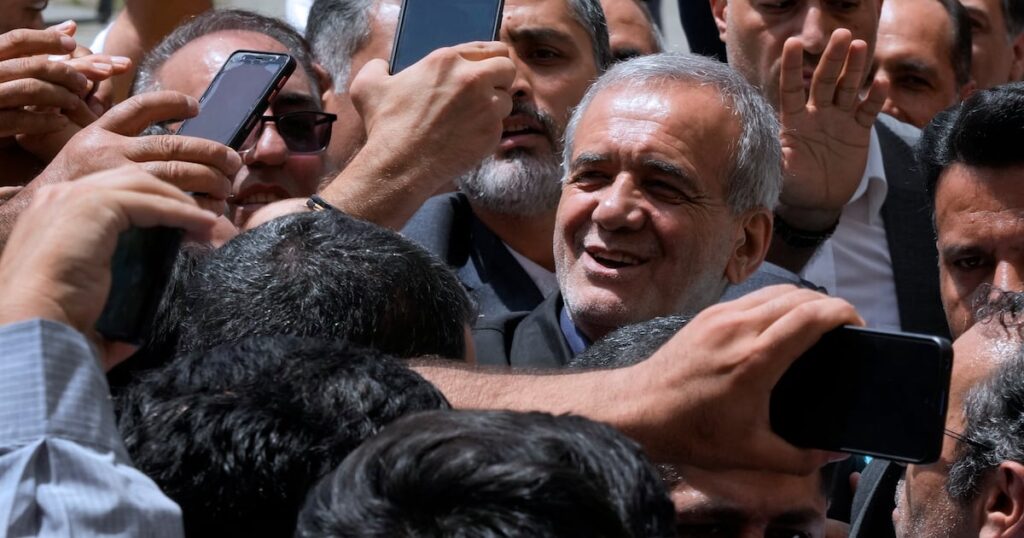Reformist candidate Massoud Pezeshkian has been elected Iran's next president, beating hardline candidate Saeed Jalili by about three million votes in a runoff election on Friday, according to figures released by officials.
Pezeshkian has pledged to work with Western countries to ease enforcement of the country's compulsory headscarf law, following years of sanctions and protests against the Islamic Republic.
Officials announced Saturday that Pezeshkian was the winner, receiving 16.3 million votes to Jalili's 13.5 million.
Iran's Interior Ministry announced that 30 million people voted in the runoff election.
Supporters of Mr Pezeshkian, 69, a heart surgeon and long-time parliament member, took to the streets of Tehran and other cities before dawn to celebrate him widening his lead over Mr Jalili, a former nuclear negotiator.
“I extend the hand of friendship to all,” Pezechkian said in his first remarks after being declared the winner.
“We extend the hand of friendship to everyone. We are all citizens of this country and we should all be used for the development of the country,” Pezeshkian said on state television.
Of the total 30,530,157 votes counted, Pezeshkian received 16,384,403 votes, while Jalili came in second to his rival with 13,538,179 votes.
He is due to be sworn in by parliament in the coming days after the results are verified by hard-line election monitors and approved by Iran's Supreme Leader Ayatollah Ali Khamenei.
Pezeshkian has been elected to parliament five times since 2008, and served as its deputy speaker from 2016 to 2020. The president-elect served as Iran's health minister for four years from 2001 to 2005 under then-President Mohammed Khatami.
His assumption of office comes at a delicate time for Iran, amid rising tensions in the Middle East over the war between Israel and Hamas in Gaza, progress on Iran's nuclear program and U.S. presidential elections that could jeopardize any potential detente between Tehran and Washington.
Under Iran's dual clerical-republican system of rule, Supreme Leader Ayatollah Khamenei has the final say on all state matters, meaning the president cannot lead any major policy shifts on Iran's nuclear program or support for militia groups across the Middle East.
But the president can influence the direction of Iranian policy and will likely be heavily involved in choosing a successor to Khamenei, who is 85 years old.
In television debates and interviews, Pezechkian has promised not to challenge Khamenei's policies.
“If I am unable to fulfil my election promises, I will bid farewell to politics and will not continue. There is no point in wasting one's life and not being able to serve the people I love,” he said in a video message to voters.
The first round of voting, held on June 28, saw the lowest voter turnout since Iran's 1979 Islamic Revolution.
Iranian officials have long portrayed the turnout as a sign of support for the Shiite theocracy in a country under strain after years of economic sanctions, mass protests and a crackdown on dissent.
The election was held after hardline President Ebrahim Raisi was killed in a helicopter crash in May.
More than 61 million Iranians aged 18 and above are eligible to vote, including 18 million between the ages of 18 and 30. Polls were due to close at 6pm on Friday but were extended until midnight to increase turnout.
According to a report from the agency
Updated: July 6, 2024 12:44 PM

